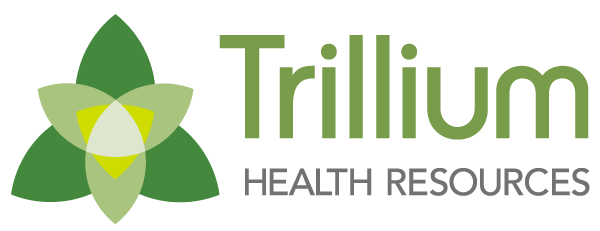At the end of 2023, Sandhills Center completed its consolidation with Eastpointe Human Services. On Feb. 1, 2024, the combined entity of Sandhills Center and Eastpointe joined Trillium Health Resources. Read the final Consolidation Plan.
WHAT DOES THIS MEAN?
If you received services from Sandhills Center and you live in Anson, Guilford, Hoke, Lee, Montgomery, Moore, Randolph or Richmond County, you are now served by Trillium.
As of Feb. 1, 2024, people living in three counties previously served by Sandhills Center are now in the care of other Local Management Entities/Managed Care Organizations (LME/MCOs) serving North Carolina:
- Davidson County is now part of Partners Health Management. Call 704-884-2729, or email CountyQuestions@PartnersBHM.org.
- Harnett County has joined Alliance Health. Visit the consolidation web page, or call 1-800-510-9132.
- Rockingham County is now served by Vaya Health. Call 1-800-962-9003, or visit the consolidation web page.
TRILLIUM WELCOMES YOU
As part of Trillium Health Resources, we are proud to continue managed care services to North Carolina’s NC Medicaid Direct population. Trillium now serves 46 counties in the combined region. The consolidation prioritizes doing what is best for members and providers, focuses on whole-person care, and promotes continued investment in the communities we serve.
Our primary focus is making sure our members have the highest quality care, delivered in the right amount at the right time. We will protect care continuity by honoring all provider contracts (for those in good standing and serving members in affected counties). It is important that members remain with their current provider or care manager.
Trillium is building a unified team with existing Sandhills Center and Eastpointe staff that places tremendous value on both institutional knowledge and local relationships. We are excited about the consolidation and all the opportunities it will present.
We look forward to listening to people who live in the former Sandhills Center region, interacting with the agencies that serve them, and helping them reach their fullest potential. Our regional advisory boards will continue to represent all 46 counties, and we will still operate our local office sites.
The North Carolina Department of Health and Human Services (NCDHHS) sent notices to all transitioning members in early 2024. Soon after, members should have received welcome packets from Trillium. You will get a new Medicaid ID card in February; until then, you can continue using your existing card.
DO YOU HAVE QUESTIONS?
Trillium has virtual office hours for members and providers to talk directly with us. You can find a schedule for these sessions by visiting the consolidation web page.
FOR MEDICAID MEMBERS AND RECIPIENTS OF STATE-FUNDED SERVICES
Your welcome packet is a valuable source for information. By visiting the Trillium Health Resources website, you can learn more about your benefits and services.
Visit your Trillium Member Portal
You can speak to someone directly by calling Trillium Member & Recipient Services at 1-877-685-2415, (TTY 711). Trillium’s Behavioral Health Crisis Line is 1-888-302-0738.
You also may visit Trillium’s web page dedicated to the consolidation efforts.
FOR PROVIDERS
- For claims information and Prior Authorization approvals, please visit this page on Trillium’s website.
- Contact Trillium Provider Support Services at 1-855-250-1539.
- Visit one of the daily information sessions held at 12 p.m. just for providers through this link.

